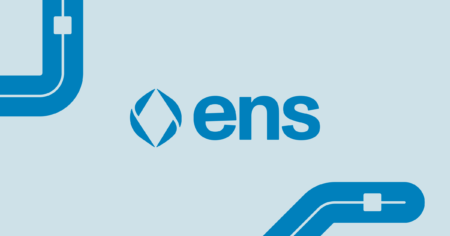Although its interference goes against the blockchain’s all-encompassing ‘decentralised’ premise, government ‘Web3 sentiment’ is always going to be a relevant topic of discussion – whether we like it or not.
And as the likes of Gary Gensler and his colleagues at the US SEC have demonstrated through their onslaught into crypto and NFTs being ‘securities,’ governmental involvement, thus far, has largely proven to be detrimental to the space’s advancement.
That being said (and with basic human nature in mind), with the disruptiveness of blockchain technology, it’s perhaps understandable to see why authorities have initially kicked-up a fuss when observing the space’s arrival into the mainstream.
With this in mind, many hope that through the spread of Web3 evangelism, authorities will soon realize and adopt the tech for itself – which in turn, may not only catapult blockchain tech into mass adoption, but also change society for the better.
Harnessing Web3 Education: A Portal into Mass Adoption
First and foremost, it’s the duty of governments to educate themselves on the benefits of Web3 and blockchain technology, as through this, they can begin to draft astute rules and regulations that could catalyse the space to newfound heights.

Although all hypothetical, Web3’s introduction into mainstream education could manifest just like any other academic subject – i.e. governments establish a proficient syllabus that could then be rolled-out across educational institutions. Further, with safeguarding infrastructures in place, it would also be harder for bad actors to exploit the space and corrupt student’s learning experiences – be it in schools or extra-curricular courses.
With the ever-evolving dynamics and attitudes towards teaching, student’s time in learning the ins and outs of blockchain tech could also follow the ‘microcredentials’ model in which other tech-centric courses use. Here, ‘microcredentials’ relate to accredited ‘fast track’ or ‘bite-size’ courses (also commonly seen across language and business schools etc.).
Through these types of learning environments, ‘intensive’ courses could see students ‘graduate’ in a matter of weeks or months, whilst more lax programs could host a session or two every week.
Ultimately, with government regulation and safeguarding underpinning a fruitful Web3 educational ecosystem, the space, in theory, could attract more eyes due to prospective students not having to commit to multi-year courses, nor ones of illegitimacy.
In turn, through having accredited courses and a wealth of qualified/educated students, the space’s recruitment domain may also enjoy a reduction in ambiguity, as now there will be better parameters for determining who is the best candidate for a role.
Implementation Into Operations: Greater Transparency and Accountability

One of the most intuitive applications of Web3 and blockchain tech within governmental operations relates to the domain of data storage and verification. Here, it goes without saying that through the introduction of on-chain data storage, governments will naturally take more accountability for their policy decisions, as in essence, their actions will be transparently available for the public to access and verify.
Hypothetically – i.e. in a perfect world – a move into such a system would make a lot of political sense, as through records being visible for people to view, governments can elicit more trust from voters.
If governments were to implement blockchain tech across its operations, the space would then be in better stead for making its way into the public sector. Similar to the case of the government, the public sector’s use of blockchain tech would see businesses store their financial, progress and all other of-interest reports on-chain, whilst also including data on all involved parties. Again, this will prompt businesses to comply with laws and regulations, as in practice, all of their ‘dirty laundry’ will be visible on the blockchain.
In turn, blockchain tech adoption throughout economies could increase trust and accountability in many directions, as every piece of in-question data will be stored, tracked, and monitored on a publicly accessible ledger.

However, from a cynical perspective, how bullish will governments really be for such action, as in practice, would they really want to expose their inefficiencies and frailties to the public? By the sounds of it, government accountants seem to already have a hard time in keeping track of resources, as year-on-year we see millions (if not billions) of taxpayer’s money vanish into thin air.
Although logic may suggest that this is an explicit reason to add blockchain tech into proceedings, many will think on the contrary to this, as it’s quite likely that governments would rather continue with their ambiguous and wasteful use of resources.
Conclusion
Whilst, for now, the latter seems more a pipedream than anything, there’s certainly hope for Web3 technologies piercing their way into mainstream education.
That being said, current projections state that it could take up to 5 or 6 years for education curricula to include Web3 technologies, however once this is achieved, we can hope that the space’s integration will follow a similar path to that of coding or programming – which, in due course, have become absolute necessities across education and society.
Of course, the ‘end-game’ for Web3’s introduction into mainstream education will be the production of more advanced Web3 products – which, in turn, may signal the beginning of an organic economy that’s always in need of Web3-educated ‘graduates’.




